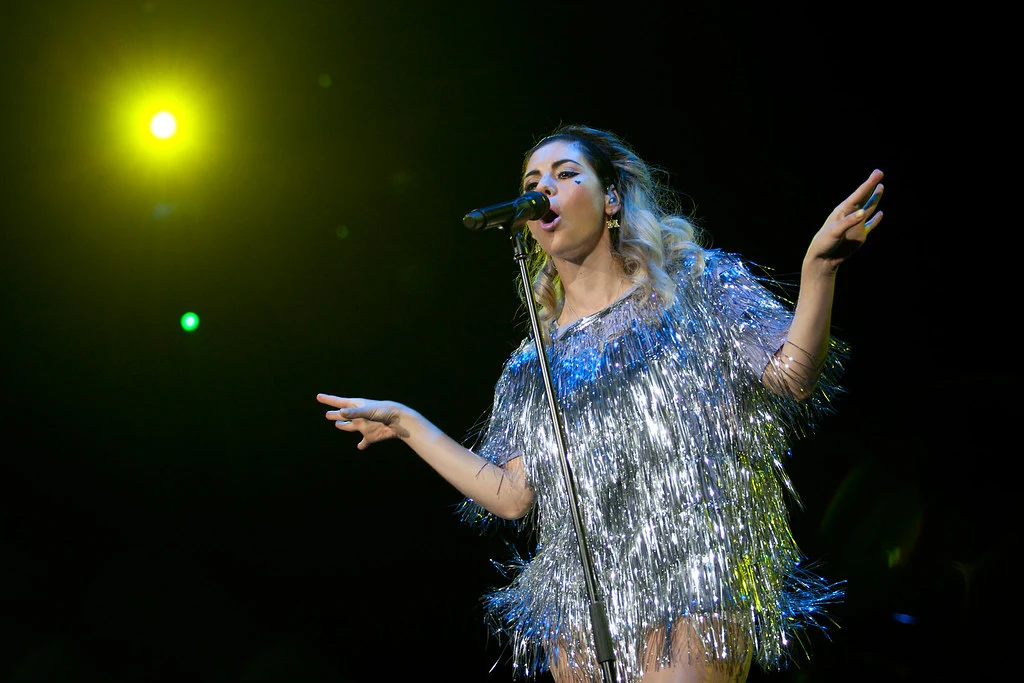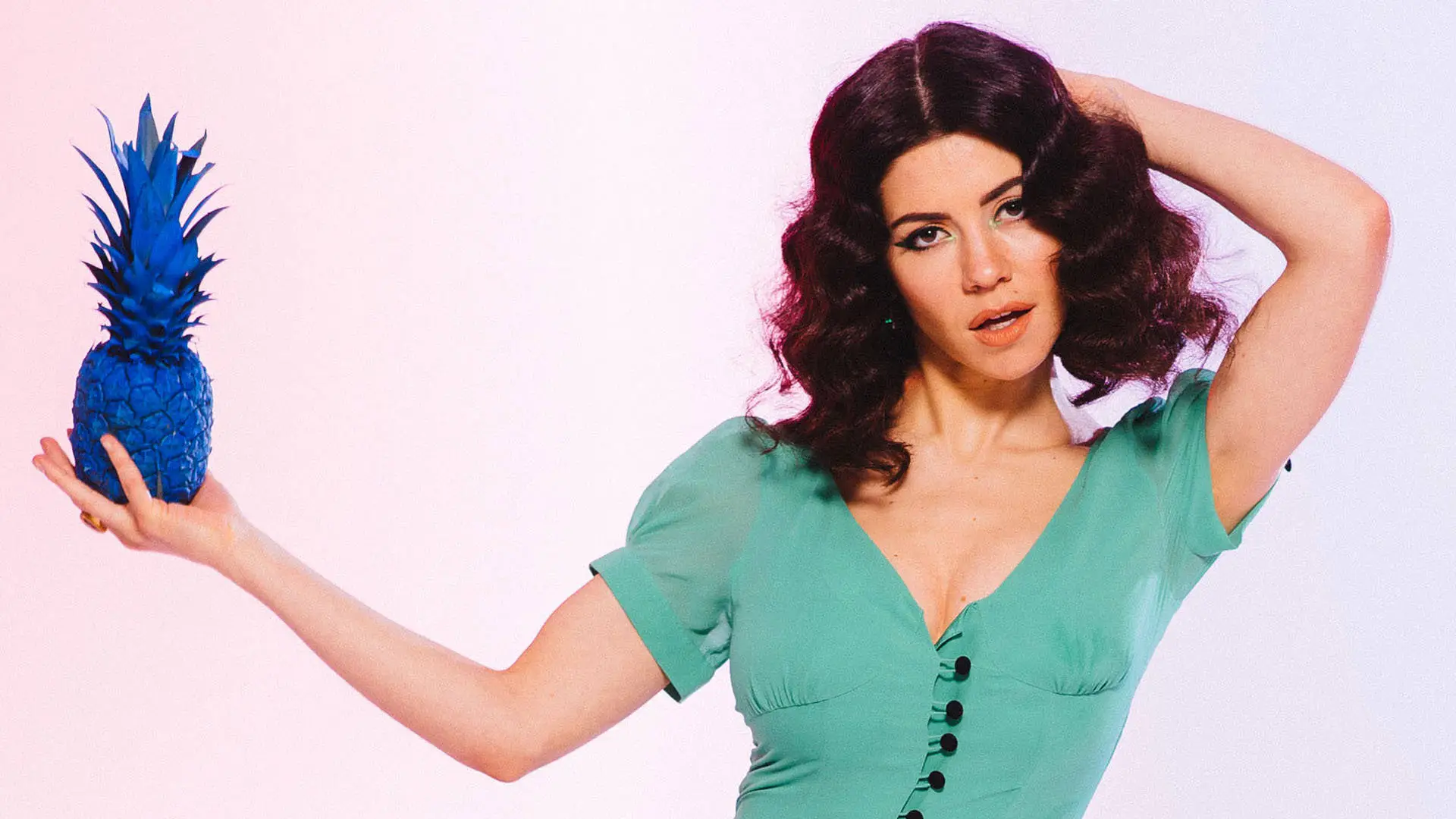Marina Diamandis, known for her music career under the name Marina and the Diamonds, has made a significant transition in her artistic expression with the release of her poetry collection, Eat The World. This book marks a new chapter for the 39-year-old singer, who has released five albums but finds herself writing in a way that feels entirely fresh and transformative. The collection not only explores her personal journey through the lens of an eating disorder but also delves into themes of loneliness, relationships, and self-acceptance as a woman in her 30s.

Diamandis’ journey into poetry began unexpectedly a couple of summers ago after an experience with psychedelics inspired her to express feelings and thoughts that didn’t fit into the confines of song lyrics. As she began to pen her emotions, the words flowed into a collection that Vanity Fair has called “insightful and introspective.” In Eat The World, Marina discusses various aspects of her life, including the challenges of navigating sour relationships and the complexity of her experiences living in Los Angeles.
One of the most poignant parts of her collection is the poem “Aspartame,” which vividly recounts her move to LA at the age of 20 and her struggles with bulimia during that period. In this piece, she reflects on the lengths she went to in order to gain the affection of a man while battling her eating disorder. Bulimia, characterized by cycles of bingeing and purging, is more prevalent among young people aged 15 to 25, according to the NHS. Although this is a topic she has touched upon in her music, such as in her 2012 album Electra Heart on the track “Teen Idle,” her poetry allows her to explore the issue in greater depth and honesty.
In her poetry, Diamandis does not shy away from the harsh realities of bulimia. She describes herself as being “rail thin in a polka dress,” her body ravaged by the physical consequences of her disorder, including “tooth enamel dissolved by stomach acid.” In another poem, “Smoothness of Money,” she confronts the painful cycle of bingeing and purging directly. By discussing these experiences candidly, she hopes to remove the shame and secrecy often associated with eating disorders.
Reflecting on her past, Diamandis notes that she feels distanced from her eating disorder, stating that she has moved on and can now discuss it without shame. “This chapter in my life was like 15 years ago,” she explains. “I think it’s really important to take that mystery or shame away from it.” She acknowledges that eating disorders are a serious mental health issue that can be life-threatening, emphasizing the misery they can cause in a person’s life.
For Diamandis, the turning point in her recovery came when the physical toll of bulimia affected her ability to sing. “I decided I was never going to achieve my dream of being a singer if I continued with this,” she recalls. This realization prompted her to prioritize her health over her disorder, leading to a gradual recovery that took nearly a decade.
She challenges the common misconception that eating disorders are solely about body image. “It really is never that,” she insists. “That’s like the surface issue, but below that are family issues happening, there’s always self-esteem stuff going on.” For those grappling with similar challenges, she advises a compassionate approach to oneself, suggesting that kindness and understanding are essential in the journey toward recovery.
The eating disorder charity Beat echoes this sentiment, emphasizing the importance of open dialogue about mental health issues. They highlight that shame and stigma thrive around eating disorders, making it crucial for public figures like Diamandis to share their stories. “Eating disorders can affect anyone and that there’s nothing to be ashamed of,” they assert. The charity encourages those struggling to seek help and reminds them that full recovery is possible.
Despite her long career in the industry, which began in 2008 during a time when size zero was the ideal, Diamandis believes society has simply shifted from one unrealistic standard to another. “On one hand, we now celebrate things like being super curvy or having a tiny waist or a big bum,” she observes. “But I just feel like we’ve swapped one set of ideals for another.” With the rising prevalence of cosmetic procedures, she worries that women are still under pressure to conform to external expectations.
As she continues her artistic journey, Diamandis is currently working on her sixth album but envisions writing more books in the future. “I can definitely see myself writing another poetry book, but maybe in three years’ time,” she muses, expressing a desire to explore essays as well. For now, her poetry serves as a powerful testament to her experiences, providing insight and connection to those who may be struggling with their own mental health challenges. Through her art, Marina Diamandis is not only reclaiming her narrative but also encouraging others to embrace their stories and break the silence surrounding eating disorders.






